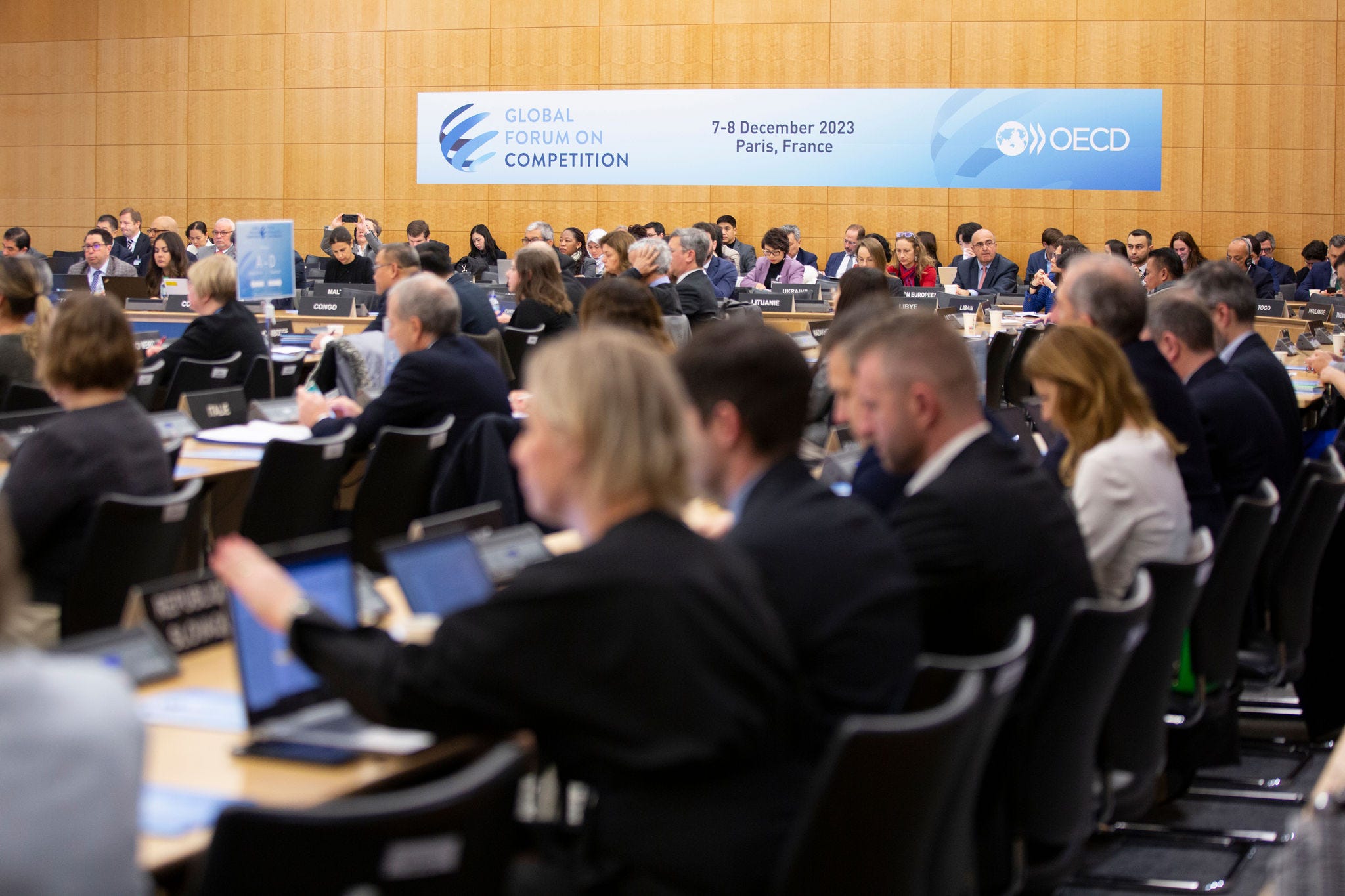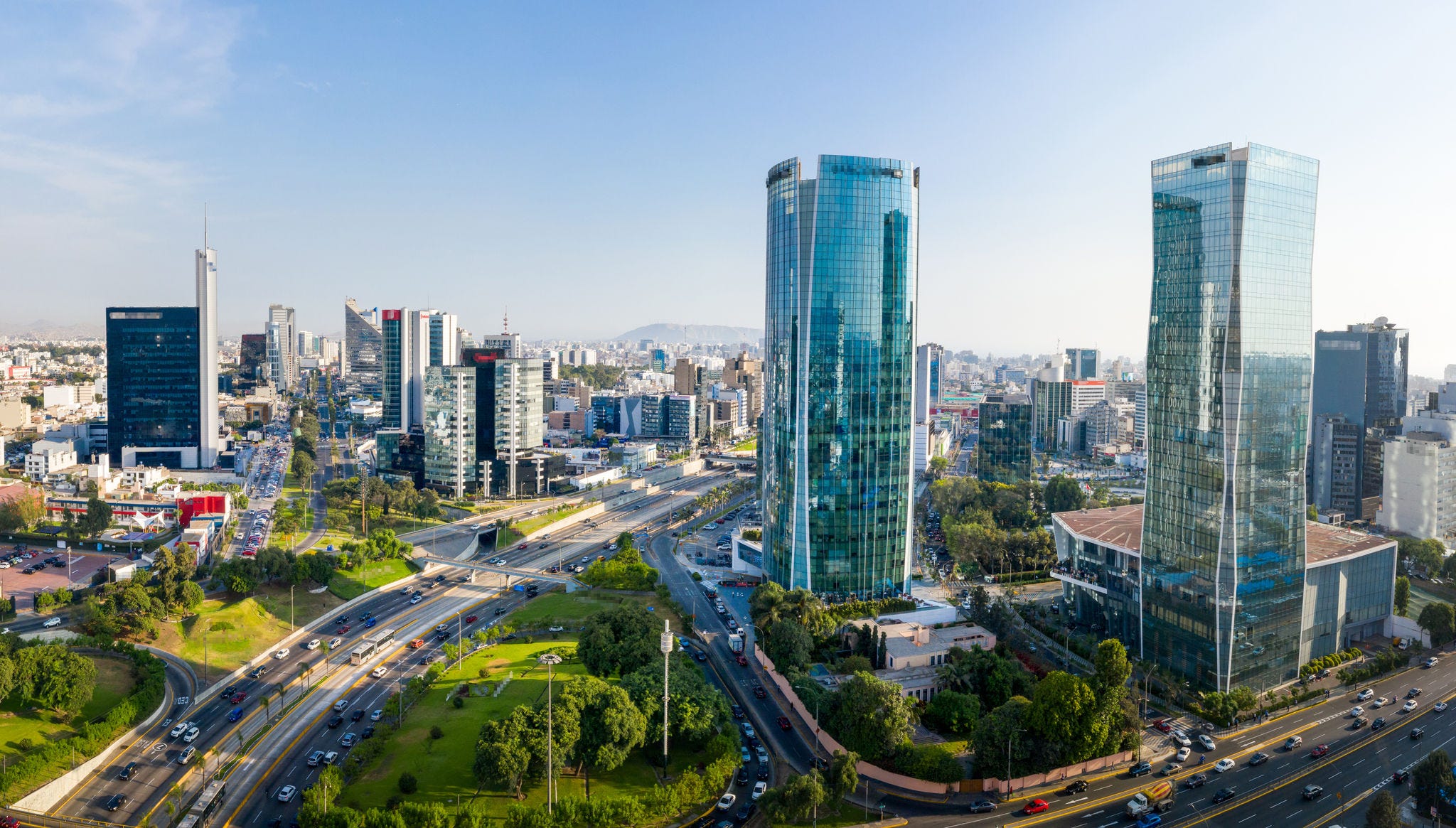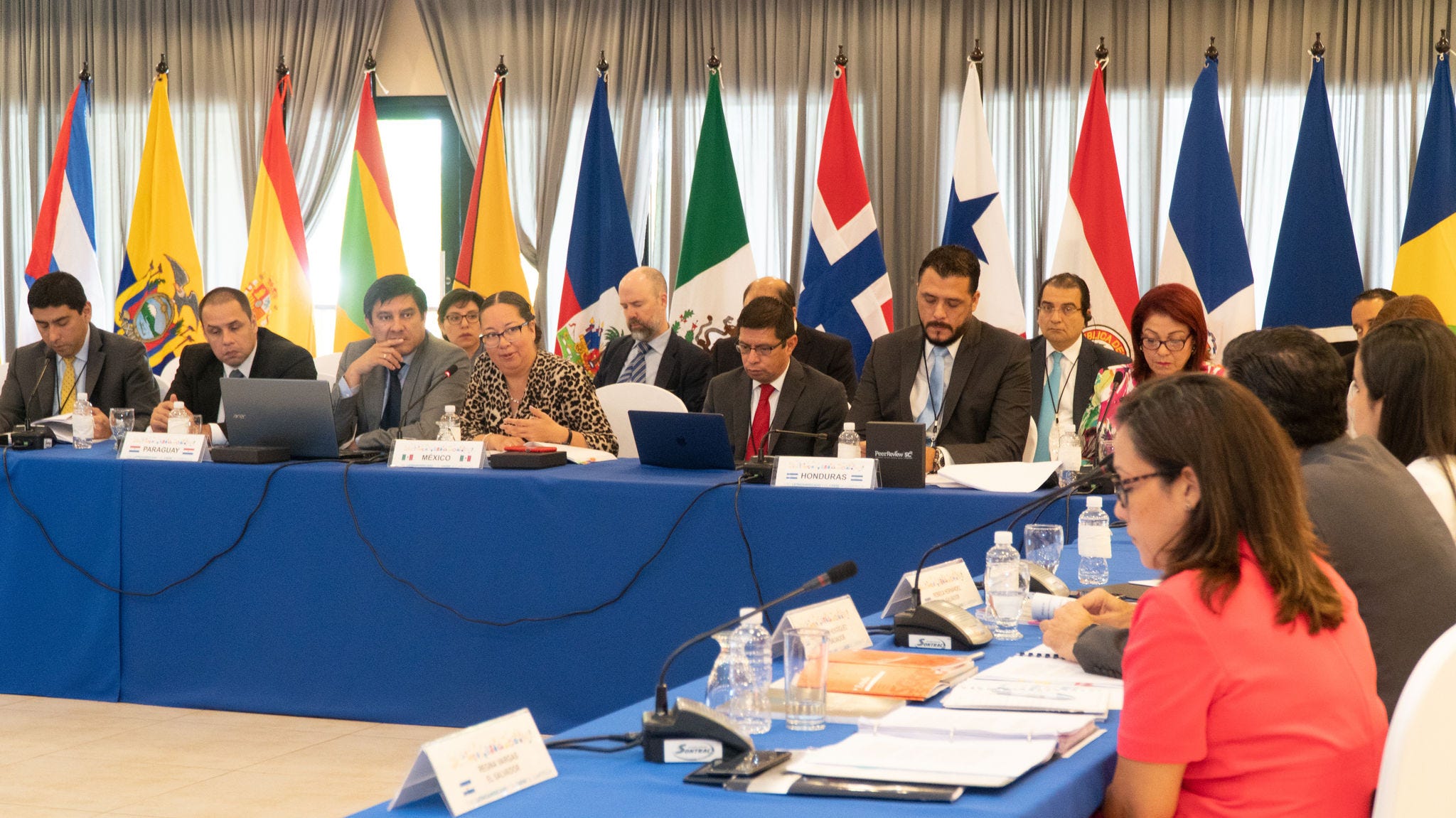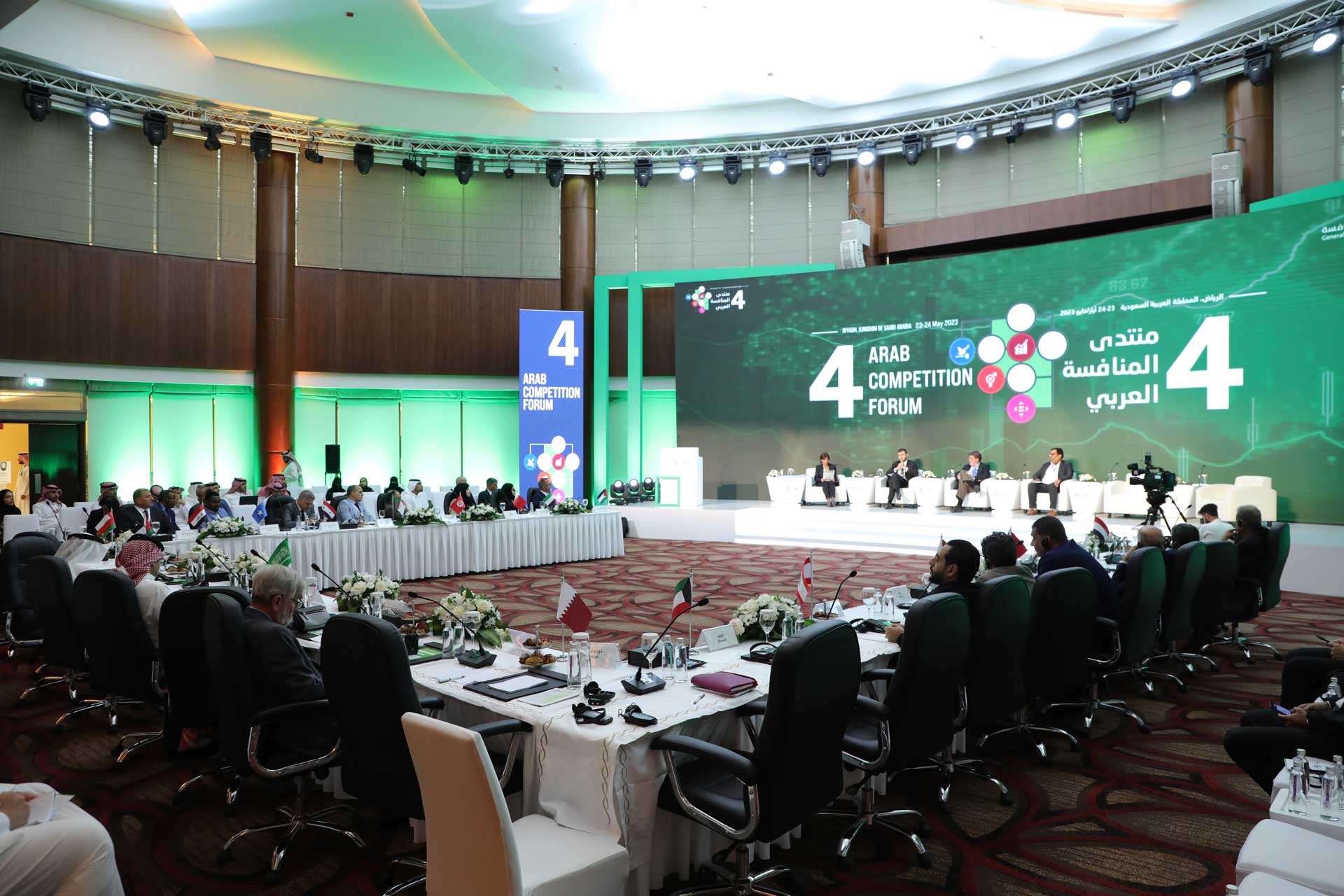Established in 2001, the OECD Global Forum on Competition brings together each year high-level officials from more than 110 competition authorities worldwide from both OECD and non-OECD economies. Joining with representatives of international organisations and invited experts, participants debate and discuss key topics on the global competition agenda. With a broad focus on development, the Forum promotes a wider dialogue that encompasses the linkages between competition policy and other cornerstones of economic development.
Global Forum on Competition 2024
The OECD Global Forum on Competition brings together each year high-level officials from more than 110 competition authorities worldwide. This year's topics include competition and inequality, cross-border mergers, global value food chain and a peer review of Thailand's competition regime.
- Date
- 2-3 December 2024
- Time
- 09:30-19:30
- Location
- Paris

About
Who can attend?
The Forum's opening and first session on Competition and Inequality will be webcasted and open to all.
Participation to the other sessions are by invitation only and restricted to officials from competition authorities, government agencies and international/ regional organisations worldwide. Representatives of the business community and trade movements can contribute to the discussions through the Business and Advisory Committee to the OECD (BIAC), the Trade Union Advisory Committee (TUAC). The Global Forum also welcomes the participation of Consumers International each year, an important voice for consumers, particularly in developing countries.
Registration
Forum participation is by invitation only and registration is mandatory to access the venue. If you come from a:
Non-OECD member economy: you will register via this link.
OECD member country: please register through your permanent delegation in Paris.
Media partners who wish to attend or competition officials which have not received an invitation may contact angelique. servin@oecd.org.
Day 1 | 2 December 2024
Session 1. Competition and Inequality
Rising inequality and its detrimental impacts emphasise the need for governments to better understand the contributing factors, and to pursue opportunities to address these factors and foster more equal societies. In this context, the panel will explore the relationship between competition and inequality; and to what extent competition law and policy could contribute to reducing inequality. This session will also examine recent developments in, and future opportunities for, national competition law and policies.
This session is open to the public and will be webcasted live on Youtube.
Watch here
SESSION MATERIALS
Background note by Prof. Eleanor Fox | Note de référence par Prof. Eleanor Fox
Session 2. Cross-border Mergers
In a globalised and digitised world economy, there has been an increase in the number of mergers transactions that have an impact in more than one country. For competition authorities who are responsible for reviewing merger transactions, this has created new challenges and introduced more complexity to their merger review procedures and analyses. This paper will survey these challenges, explain the reasons why competition authorities may arrive at different decisions, and the role international co-operation plays in each phase of a cross-border merger review.
SESSION MATERIAL
CONTRIBUTIONS FROM PARTICIPATING DELEGATIONS
Day 2 | 3 December 2024
Session 3. Peer Review of Thailand
This session will focus on the examination phase of the ongoing OECD Peer Review of competition law and policy in Thailand. Founded on the willingness of a country to submit its laws and practices to substantive review by peer countries, peer reviews of competition law and policy are a valuable tool to reform and strengthen a country’s competition framework. This session will explore the current competition regime in Thailand and assess its effectiveness. The session will also seek to identify key recommendations to help Thailand strengthen its competition regime and institutions.
Session 4. Competition in the food supply chain
The food supply chain represents a set of transactions from the supply of inputs to farmers through to arrival at a consumer residence. Its relevance in the global context is particularly high, due to the fine balancing that takes place between government intervention and market operation. Smooth operation of the food supply chain has been disrupted in recent years, and questions have been raised over whether inflation arises to some extent from market failures in this chain.
The purpose of this roundtable will be to consider the different elements of a food supply chain and how can government policy related to competition, including competition law enforcement, play a role to limit market failures. To the extent the greater competition can limit inflationary tendencies, citizen benefits can arise not only for pocketbooks but, more fundamentally, for long-term health.
SESSION MATERIALS
CONTRIBUTIONS FROM PARTICIPATING DELEGATIONS
Summary of the below contributions
Speakers
Competition and Inequality
KEYNOTE: Eleanor M. Fox
Walter J. Derenberg Professor of Trade Regulation Emerita | NYU School of Law



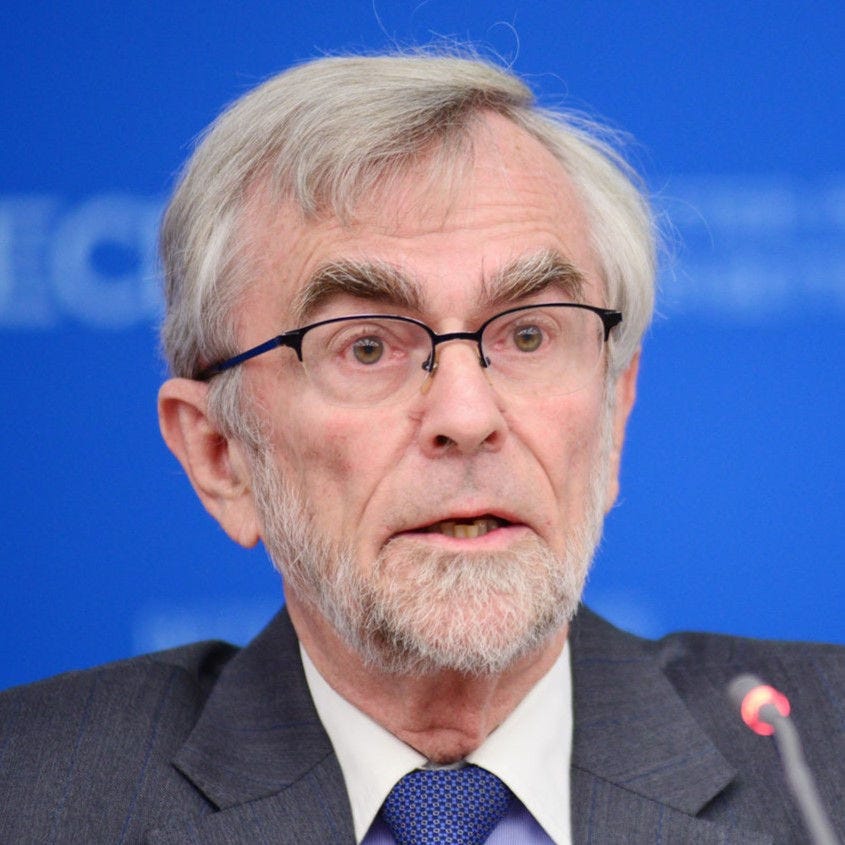


Pablo Márquez
Professor of Competition and Telecommunications Law
Pontificia Universidad Javeriana



Cross -border Mergers
Food Supply Chain
Videos
Related content
Recent papers
-
 Policy paper19 September 2024
Policy paper19 September 2024







